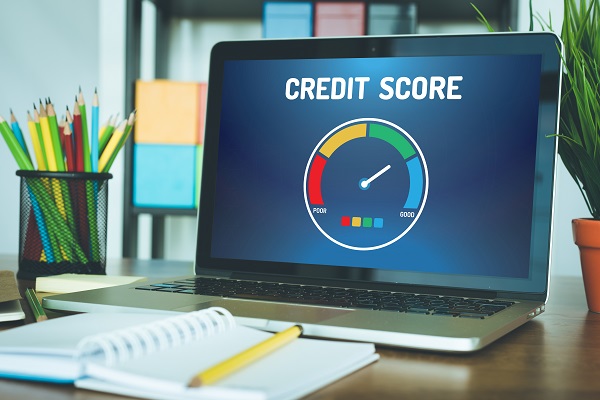Of the four credit reporting firms granted a licence by the Reserve Bank of India, The Credit Reporting Bureau (India) Ltd (CIBIL) is widely known. A three-digit numerical overview of your credit record is a CIBIL Score. The credit history contained in the CIBIL Report is used to calculate the Score (also known as CIR, i.e. Credit Information Report). A CIR is a person’s different payment history across loan kinds and lending institutions over some time.
The nation’s credit agencies determine credit scores after considering several variables, including the duration of your credit record, repayment history, and several credit queries.
Consumers now rely on loans and credit cards to help them reach their aspirations and financial objectives. The Rating is one of the crucial elements and measures in gaining its much access to credit.
A good credit rating may allow you additional benefits when you request a credit card or loans from a bank or NBFC, such as a larger loan amount, a reduced interest rate, and the ability to choose how long it would take you to pay back the loan.
This is a 3 numerical representation of a person’s credit profile and a credit history summary. This is based on previous credit behaviour, including borrowing and repayment behaviours submitted regularly with CIBIL by banks and lenders (details featured in the
CIBIL Report for the customer (also known as CIR, i.e. Credit Information Report). A CIR does not include your savings, investments, or fixed deposit information.
The CIBIL Report’s ‘Account’ and ‘Enquiries’ sections contain information that determines the Score, including (but not limited to) The likelihood that a person’s credit card or loan application will be approved increases the closer their CIBIL Score is near 900, which ranges from 300 to 900.
According to the principle that a person’s past behaviour is a good predictor of their future behaviour, the CIBIL Score displays a consumer’s creditworthiness. For instance, one of the key things lenders look at when applying for a loan or credit card is their credit profile, as shown by their CIBIL Score.
India’s top credit information provider, TransUnion CIBIL (previously Credit Reporting Bureau (India) Limited), has one of the biggest databases of consumer data.
Avail – personal loan without CIBIL Check
What is CIBIL?
750–900 is an excellent CIBIL score.
Good CIBIL Score: 650–750
CIBIL score on average: 550–650
300–500 CIBIL score, poor
It considers the credit history of the borrower during the previous 36 months.
An individual’s credit history includes all of the loans they have taken out, including credit card payments, personal loans, vehicle loans, overdraft facilities, and home loans, as well as their payment history.
What is a CIBIL Report?
The borrower’s Credit bureau Scores, credit summary, contact information, employment information, and details on their loan accounts are all included in a CIBIL Report, a composite credit report. It is crucial to remember that lenders consider both the CIBIL Score and Report when considering a borrower’s loan eligibility.
What factors influence a CIBIL Score?
The CIBIL Score is generated by a scoring system considering a sizable number of data items and general credit trends.
Its foundation is a 36-month credit history. Credit score, loan balance, inquiries, and credit utilisation are the four main factors that affect a consumer’s CIBIL Score. However, the much more current CIBIL Score algorithm also considers credit depth.
The level of borrowing, the long-term trend of unsecured balance, credit card spending past, the proportion of actual reimbursement to full sum owing, and credit applications opened/accounts closed are all factors that are now included in the most recent CIBIL Score algorithm.
How can one establish a solid credit history?
The CIBIL Rating is determined by prior loan past and recent payments, but it will additionally affect how readily you can receive future loans.Every month, review all joint, secured, and co-signed accounts. Note that you share responsibility for delayed payment on guaranteed, co-signed, or jointly owned accounts and that you might not be able to obtain credits when you need them due to the irresponsibility of its co-owner (or the guaranteed person).
You develop a more robust and sound credit profile. This is how:
- Always pay your bills on time because lenders don’t like it when people don’t.
- Reduce your credit usage, maintain low balances, and maintain proper utilization. Additionally, request fresh credit sparingly.
- Keep a good balance of secured (such as a mortgage or car loan) and unsecured (such as a credit card or personal loan) debt; many more unsecured loans could be considered adversely.
- Periodically review your credit history throughout the year. Checking your Credit Rating and Report frequently will help you avoid unpleasant surprises. You’ll be aware of potential errors if you regularly review your report. If you discover any errors, you can either submit it on the Credits website or request that the lender inform CIBIL of the correction.
- If you have a good credit history, you might make a good lender and also be able to get credit. Keep a close eye on your credit report periodically to ensure you are lending and ready for lenders when you require them the most.

